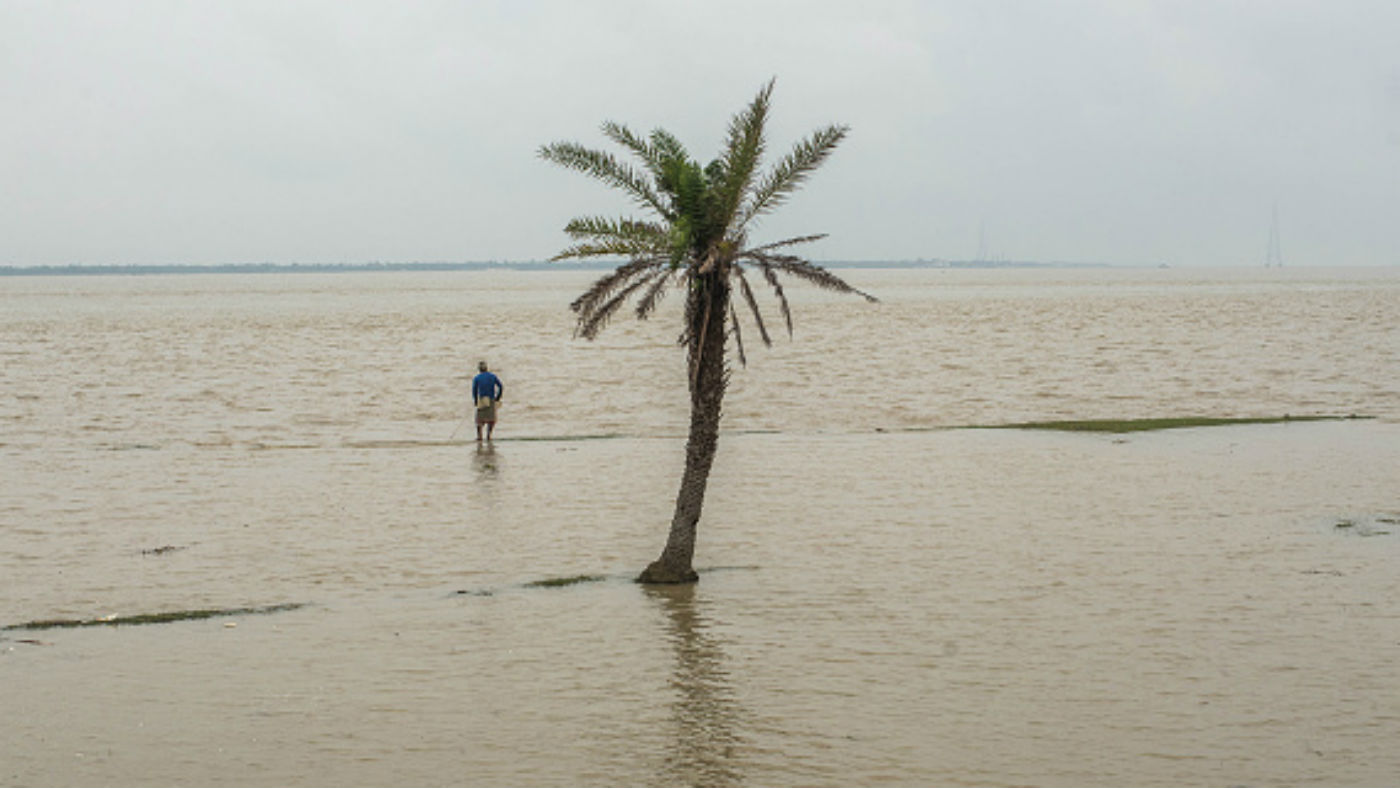Ghoramara: the Indian island disappearing into the sea
Rising sea levels are threatening residents’ homes but most can’t afford to evacuate

A free daily email with the biggest news stories of the day – and the best features from TheWeek.com
You are now subscribed
Your newsletter sign-up was successful
Residents living on India’s Ghoramara Island are calling on their government to help them relocate, after losing more than half of their lands to rising sea levels caused by global warming.
The 1.8 sq mile island is located in the Sundarbans Delta of the Bay of Bengal. The delta is made up of 54 low-lying islands, many of which are being destroyed because of climate change. Another Sundarbans island, Lohachara, has already been completely washed away because of the rising tides, turning its residents into “environmental refugees”, and Ghoramara islanders fear they could be next.
“If a tsunami or a big cyclone hits this island we will be finished,” island elder Sanjib Sagar told the Economic Times.#
The Week
Escape your echo chamber. Get the facts behind the news, plus analysis from multiple perspectives.

Sign up for The Week's Free Newsletters
From our morning news briefing to a weekly Good News Newsletter, get the best of The Week delivered directly to your inbox.
From our morning news briefing to a weekly Good News Newsletter, get the best of The Week delivered directly to your inbox.
Most islanders are farmers, cultivating the mangrove trees, but the frequent flooding has damaged not only people’s homes, but the farmland they depend on for a living. The population on the island has decreased from 7,000 to 4,800 over the last decade.
Many of those who remain say they are willing to evacuate, but the cost of fleeing and beginning a new life on the mainland is prohibitively expensive.
“If government gives rehabilitation I will leave,” Ghoramara resident Sheikh Aftab Uddin told Reuters. He estimated that half of the island is prepared to leave, but stressed that islanders would need the government to provide housing because of its high cost.
According to a NASA study, global sea level rise has been accelerating in recent decades, driven by increased melting in Greenland and Antarctica. If current trends continue, by 2100 the world’s seas could have swelled by twice the projected level.
A free daily email with the biggest news stories of the day – and the best features from TheWeek.com
Rising seas now threaten entire nations, including the Maldives and the Marshall Islands, as well as major coastal cities around the world who face the prospect of disappearing underwater.
-
 Political cartoons for February 15
Political cartoons for February 15Cartoons Sunday's political cartoons include political ventriloquism, Europe in the middle, and more
-
 The broken water companies failing England and Wales
The broken water companies failing England and WalesExplainer With rising bills, deteriorating river health and a lack of investment, regulators face an uphill battle to stabilise the industry
-
 A thrilling foodie city in northern Japan
A thrilling foodie city in northern JapanThe Week Recommends The food scene here is ‘unspoilt’ and ‘fun’
-
 The plan to wall off the ‘Doomsday’ glacier
The plan to wall off the ‘Doomsday’ glacierUnder the Radar Massive barrier could ‘slow the rate of ice loss’ from Thwaites Glacier, whose total collapse would have devastating consequences
-
 Can the UK take any more rain?
Can the UK take any more rain?Today’s Big Question An Atlantic jet stream is ‘stuck’ over British skies, leading to ‘biblical’ downpours and more than 40 consecutive days of rain in some areas
-
 As temperatures rise, US incomes fall
As temperatures rise, US incomes fallUnder the radar Elevated temperatures are capable of affecting the entire economy
-
 The world is entering an ‘era of water bankruptcy’
The world is entering an ‘era of water bankruptcy’The explainer Water might soon be more valuable than gold
-
 Climate change could lead to a reptile ‘sexpocalypse’
Climate change could lead to a reptile ‘sexpocalypse’Under the radar The gender gap has hit the animal kingdom
-
 The former largest iceberg is turning blue. It’s a bad sign.
The former largest iceberg is turning blue. It’s a bad sign.Under the radar It is quickly melting away
-
 How drones detected a deadly threat to Arctic whales
How drones detected a deadly threat to Arctic whalesUnder the radar Monitoring the sea in the air
-
 ‘Jumping genes’: how polar bears are rewiring their DNA to survive the warming Arctic
‘Jumping genes’: how polar bears are rewiring their DNA to survive the warming ArcticUnder the radar The species is adapting to warmer temperatures